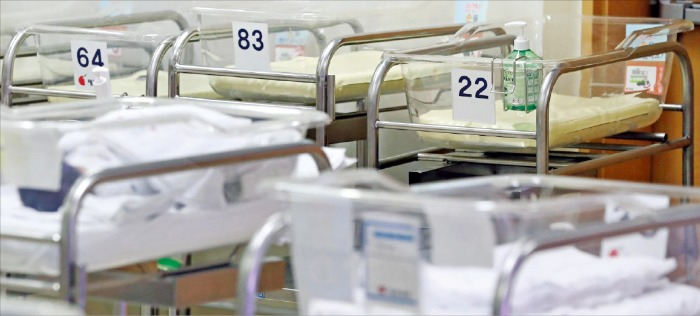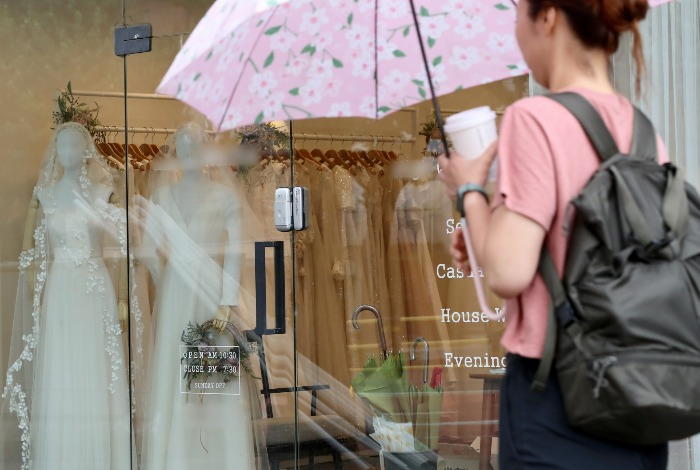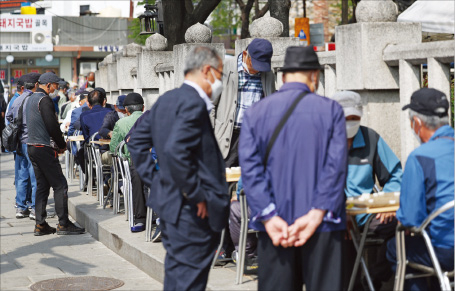Economy
S.KoreaŌĆÖs birth rate at record low despite rebound in marriages
The total fertility rate slid back to its historic trough of 0.7, also the word's lowest, in the second quarter
By Aug 30, 2023 (Gmt+09:00)
2
Min read
Most Read
Alibaba eyes 1st investment in Korean e-commerce platform


Blackstone signs over $1 bn deal with MBK for 1st exit in Korea


NPS loses $1.2 bn in local stocks in Q1 on weak battery shares


OCI to invest up to $1.5 bn in MalaysiaŌĆÖs polysilicon plant


Korea's Lotte Insurance put on market for around $1.5 bn



South KoreaŌĆÖs total fertility rate hit its trough of 0.7 again in the second quarter, according to Statistics Korea on Wednesday, deepening the demographic disaster looming in AsiaŌĆÖs fourth-largest economy.
It matched the historic low of 0.7, also the worldŌĆÖs lowest, touched in the fourth quarter of last year, since the relevant data began to be compiled in 2009.
That compared with 0.81 in the first quarter and 0.75 recorded in the second quarter of last year.
Demographic experts warned the birth rate could fall below 0.7 next year, despite government policy efforts to reverse the downward spiral of the fertility rate.
ŌĆ£The birth rate tends to decline toward the end of the year,ŌĆØ said Choi Seulki, a professor of demography and sociology at KDI School of Public Policy and Management
ŌĆ£Unless there is a major reversal, this year's total fertility rate is expected to be lower than last yearŌĆÖs (0.78).ŌĆØ
South KoreaŌĆÖs fertility rate has been on a rapid decline and fell below 1.0 in 2018. Among OECD members, it is the only country with a total fertility rate below 1.0 as of 2021.
The total fertility rate measures the average number of children a woman is expected to give birth to in her lifetime.
The number of births in the second quarter was 56,087, down 6.8% from the previous year. It is also the lowest ever for that quarter.

Demographic experts said the old formula -- that an increase in marriages leads to a higher birth rate -- does not apply anymore.┬Ā
ŌĆ£As the number of marriages, postponed due to COVID 19, rose from the second half of last year, we expected the birth rate would rebound, but unlike in the past, marriages are not leading to births,ŌĆØ said Lee Sang-lim, head of Korea Institute of Health and Social AffairsŌĆÖ demographics monitoring center.
The number of babies born in 2022 shrank to 249,000, or 11,000 fewer than the previous year.
It was the first time for the number of births to dip below the 250,000 mark since 1970, when the relevant data started to be compiled. In 1970, the number exceeded 1 million.
As the average marriage age has been rising, the average maternal age edged up 0.2 to 33.5 in 2022, compared with the prior year, marking the highest ever for the country.
The average age of the father of a child born last year stood at 36.0, slightly higher than 35.9 in 2021 and the highest since 2010, when the related statistics began to be compiled.

POPULATION DECREASE SINCE NOVEMBER 2019
For every 1,000 women, the birth rate in the second quarter fell or remained stagnant in all age groups, compared with the year-earlier period.
In particular, among those in their early 30s, the number of births per 1,000 women decreased to 65.4, or 6.3 fewer than the previous year.
The number of deaths in the second quarter was 83,359, down 7.9% from the previous year, when deaths rapidly increased in the wake of COVID-19.
However, as the number of deaths exceeded that of births, the population dwindled by a net 27,272 in the second quarter.
On a monthly basis, the number of births has decreased for 91 months in a row since December 2015, resulting in 44 straight months of population decline, since November 2019.
Write to Sang-Yong Park and Se-Min Huh at yourpencil@hankyung.com
┬Ā
Yeonhee Kim edited this article.
More to Read
-
 EconomyS.Korea mulls adding national pension benefits to raise birth rate
EconomyS.Korea mulls adding national pension benefits to raise birth rateMay 31, 2023 (Gmt+09:00)
1 Min read -

-
 EconomySeoul to lower bar for multi-child family subsidies to raise birth rate
EconomySeoul to lower bar for multi-child family subsidies to raise birth rateMay 16, 2023 (Gmt+09:00)
1 Min read -
 EconomyS.Korea hits historic low fertility rate in 2022, adding to economic woes
EconomyS.Korea hits historic low fertility rate in 2022, adding to economic woesFeb 22, 2023 (Gmt+09:00)
2 Min read -
 EconomySouth Korea's total fertility rate falls under 0.8 in 3rd quarter
EconomySouth Korea's total fertility rate falls under 0.8 in 3rd quarterNov 23, 2022 (Gmt+09:00)
1 Min read -
 EconomyS.KoreaŌĆÖs birth rate decline accelerates to worldŌĆÖs lowest
EconomyS.KoreaŌĆÖs birth rate decline accelerates to worldŌĆÖs lowestFeb 25, 2021 (Gmt+09:00)
4 Min read
Comment 0
LOG IN


